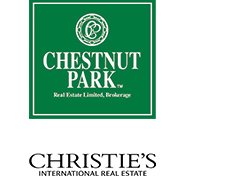Market Report
What Do I Own When I Buy a Condo?
When you buy a condominium, you own your unit, as well as a percentage of the common property elements allocated to the unit. The boundaries of each individual unit and the percentage of common elements you own may vary from condominium to condominium, depending on how they are specified in the condominium’s governing documents. Sometimes, the unit boundary can be at the backside of the interior drywall of the unit’s dividing walls. Alternatively, the unit boundary can be the centre line of the unit’s walls. The boundaries of your condominium unit are an important consideration at the time of purchase— particularly if alterations and renovations are a potential part of your purchase plan.
The unit typically includes any equipment, systems, finishes, etc. that are contained only in the individual unit. The right to use one or more parking spots and storage areas may be included. While you may have exclusive access to parking spot or storage area, you seldom actually own the space itself.
For a freehold condominium (or a bare/vacant land condominium), the unit may be the entire house including the exterior walls, the roof and in some cases, the land surrounding the structure. Prior to making a purchase, you may wish to hire a professional surveyor to review the site plan for the condominium corporation so you know exactly where your unit’s boundaries lay.
Components of building systems that serve more than one unit, such as structural elements and mechanical and electrical services, are often considered part of the common property elements, particularly when they are located outside of the unit boundaries specified in the condominium’s governing documents.
There may be some parts of the condominium complex that are called “exclusive use common property elements.”
They are outside the unit boundaries, but are for the exclusive use of the owner of a particular unit. Balconies, parking spaces, storage lockers, driveways and front or rear lawn areas are common examples of exclusive use common property elements. It is important to be aware of any exclusive use common property elements before you make an offer to purchase a condominium. While these spaces are exclusive to your use, there may be restrictions on how and when you use them. For instance, you may not be able to park a boat, RV or commercial vehicle in your assigned parking spot. There may also be restrictions on what you can place on your balcony.
Above material extracted from the Canadian Mortgage and Housing Corporation website. For more information please visit www.cmhc.ca




